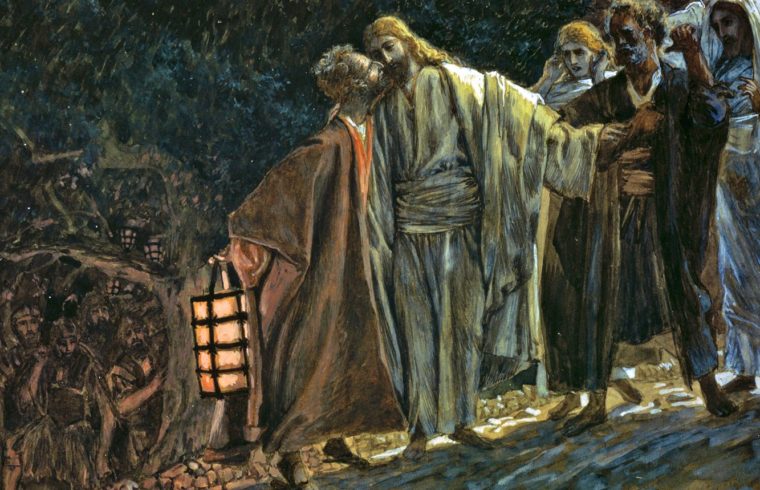It dawned on me that I’ve not encountered this Gospel passage at Mass – in at least 25 years. This passage is only proclaimed (I believe) on the Monday of Holy Week. Traditionally in our Archdiocese this is the evening we celebrate the Annual Chrism Mass at our Cathedral Basilica of the Sacred Heart in Newark which has a different set of readings, so there is something very unique and rare about it for me. It’s kind of new for me to read and reflect on which doesn’t happen often for me with Scripture especially the New Testament. So I found my mind going in a lot of different directions praying with this whole scene. But one word kept coming back to mind.
The word that comes to mind is unfiltered.
St. John didn’t write this Gospel as it was happening. He wasn’t a reporter taking notes or keeping a daily journal. John would commit his remembrances, his recollections under the guidance of the Holy Spirit decades after Jesus had ascended into heaven and the Church had already begun it’s mission of proclaiming the good news of Jesus Christ that they had experienced, witnessed and shared themselves. As years went by and they realized that Jesus’ second coming wasn’t imminent, so the urgency to commit to writing down this good news began to occur. It’s one of the things that gives us more evidence of the truth, the authenticity of the Gospels. Had this been a conspiracy, there wouldn’t be inconsistencies among the narrative. The authors would be cautious about making themselves look and appear a certain way – and how events occurred.
In any event, we’re so used to Sacred Scripture being somewhat polished. We expect to find verses that speak in such a way that we can just share a biblical citation and share it to speak words of faith, of hope, of love. So imagine you got a note from someone who ended it with John 12: 6. And you turn to that and read: He said this not because he cared about the poor but because he was a thief and held the money bag and used to steal the contributions. There’s a fun activity for you to pull on some of your friends the next time you send a note or email add “John 12:6″ and have people wonder what that means.
More seriously though, what drew me to this – St. John was still hurt – St. John was still angry – St. John was still disillusioned by what Judas did to Jesus. It’s not like St. John felt – hey Jesus rose from the dead on Easter, so many great things happened after Good Friday that what Judas did was no longer a big deal. We can sense, we can hear in that one verse, John not only felt the betrayal on behalf of Jesus, John was betrayed by Judas too.
Here is John, the beloved disciple who got to be there and witness and share in all these mysteries of our faith that we treasure and try to imagine and try to wrap our minds around – and in this unfiltered moment we can see and hear this side of John, who is still struggling with very human, very relatable emotions. Feelings that obviously were not still resolved many years later. That’s the effect of what evil does. Judas’ heart had already turned at this point. John’s remembering that here was this gathering – Mary, Martha, and the guy who was dead and came back to life – Lazarus – who are all just a bit overjoyed to see Jesus again. Not only was Judas not able to celebrate with them because of the evil in his heart – but this whole interaction tainted it for John in his remembrance of it.
I’m left wondering – and not trying to be a psycho analyst here, or reading John’s soul – but was John ever able to forgive Judas? He knew that’s what Jesus wanted, commanded him to do – and as his beloved disciple, I’m sure John wanted that as well – yet, we can sense the lack of resolution here. The Passion of Jesus Christ incorporates every human emotion, every possible experience imaginable. As we journey with Jesus, we stop here today and are left to ask ourselves, in our unfiltered moments, is there anger, is there hatred even there in our hearts – feelings we might even be angry about harboring, things that we try to suppress or deny because they are things that we hate are even there – things that we hate about ourselves.
Jesus wants it to come out. Jesus as He journeys to the cross, taking on every sin of humanity in this great act of love, wants to take these things from each of us as well. Because this same man who raised Lazarus from the dead, wants to raise us into experiencing the power of the resurrection in our lives. May we allow ourselves to be unfiltered and unafraid to entrust ourselves to Him.











